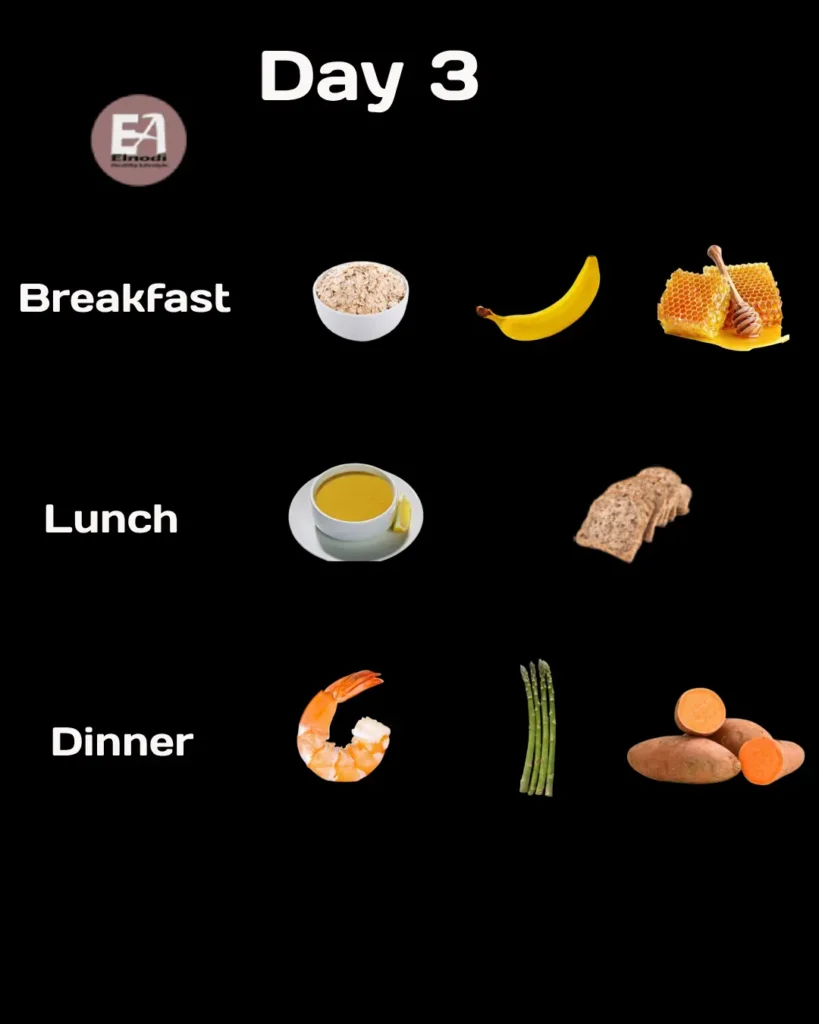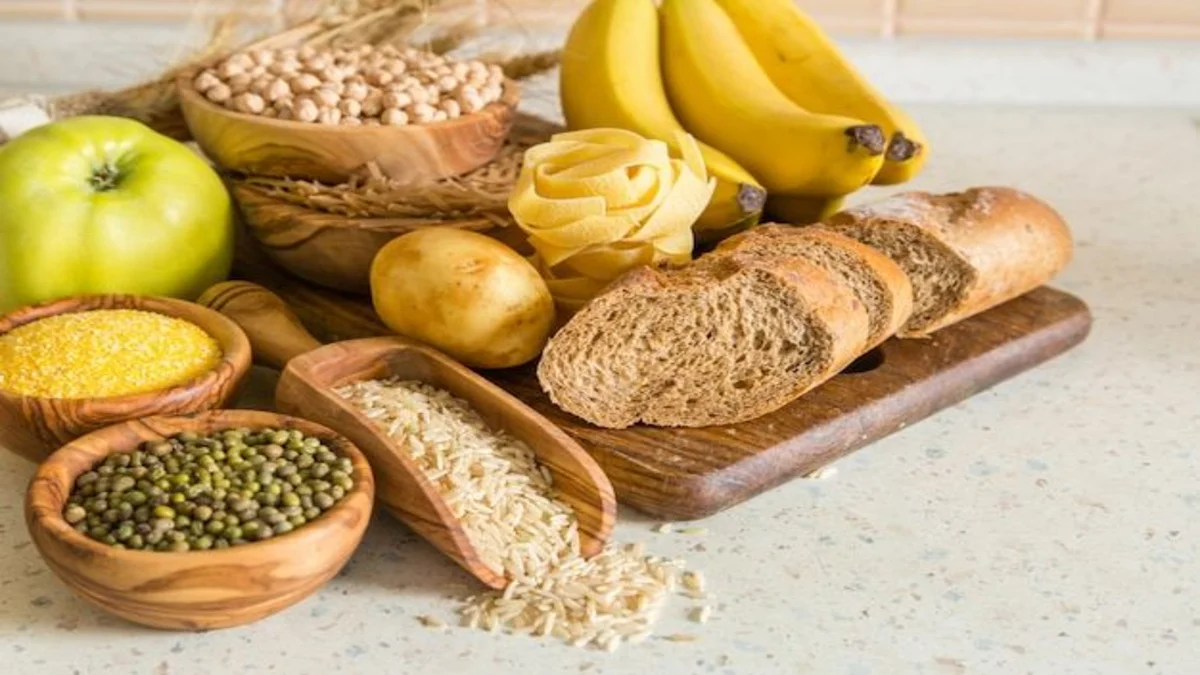The 1300-calorie diet is highly suggested for weight loss; however, before starting, you should determine whether it will work for your body. A person should consume at least 1200 calories every day to maintain good health. As a result, the 1300-calorie diet plan may be suitable for a large number of people.
To keep within your goals when following a calorie-controlled meal plan, it’s critical to prepare ahead and decide what you’re going to eat. Ensuring that you fulfill all of your daily requirements for vitamins and minerals is also crucial.
Benefits of Nutrition Is Important on a 1,300-Calorie Diet
A 1,300-calorie diet is ideal for weight loss in those who do not exercise regularly. In general, men and active women who wish to lose weight should eat between 1,500 and 1,800 calories each day.
Age, sex, exercise level, and general health all affect how many calories a person needs, according to the Dietary Guidelines for Americans. The Dietary Guidelines recommend that adult men consume 2,000–3,200 calories per day and adult women consume 1,600–2,400 calories per day to achieve their nutrient demands.
A 1,300-calorie meal plan is something you should only do on a doctor’s or licensed dietitian’s advice. To ensure that you are getting all the critical nutrients you need, you might also need to take a multivitamin supplement.
1300-Calorie Diet Meal Plan
sample 7-day meal plan with breakfast, lunch, and dinner each day, totaling around 1300 calories per day:
Day 1:

- Breakfast: Scrambled eggs (2 eggs) with spinach and tomatoes (200 calories)
- Lunch: Grilled chicken salad with mixed greens, cucumber, and balsamic vinaigrette (300 calories)
- Dinner: Baked salmon with steamed broccoli and quinoa (400 calories)
Day 2:

- Breakfast: Greek yogurt with berries and a sprinkle of almonds (250 calories)
- Lunch: Turkey and avocado wrap with whole grain tortilla (300 calories)
- Dinner: Stir-fried tofu with mixed vegetables and brown rice (350 calories)
Day 3:

- Breakfast: Oatmeal with sliced bananas and a drizzle of honey (300 calories)
- Lunch: Lentil soup with a side of whole-grain bread (300 calories)
- Dinner: Grilled shrimp with roasted asparagus and sweet potato (400 calories)
Day 4:

- Breakfast: Whole grain toast with mashed avocado and a poached egg (250 calories)
- Lunch: Quinoa salad with chickpeas, diced bell peppers, and lemon-tahini dressing (350 calories)
- Dinner: Baked chicken breast with sautéed spinach and roasted cauliflower (400 calories)
Day 5:

- Breakfast: Smoothie with spinach, banana, almond milk, and protein powder (250 calories)
- Lunch: Veggie wrap with hummus and assorted vegetables (300 calories)
- Dinner: Turkey chili with kidney beans and side salad (400 calories)
Day 6:

- Breakfast: Cottage cheese with sliced peaches and a sprinkle of cinnamon (250 calories)
- Lunch: Grilled vegetable and feta cheese salad with vinaigrette dressing (350 calories)
- Dinner: Baked cod with roasted Brussels sprouts and quinoa (400 calories)
Day 7:

- Breakfast: Whole grain cereal with skim milk and a small handful of nuts (250 calories)
- Lunch: Black bean and corn salad with diced tomatoes and cilantro-lime dressing (300 calories)
- Dinner: Grilled steak with sautéed mushrooms and a side of roasted carrots (400 calories)
- This meal plan provides a variety of nutrients from lean proteins, whole grains, fruits, and vegetables to keep you satisfied and energized throughout the week while staying within the 1300-calorie range. Adjust portions or ingredients according to your preferences and dietary needs. Additionally, remember to stay hydrated by drinking plenty of water throughout the day.
Pros Vs. Cons of the 1300 Calorie Diet
| Pros | Cons |
|---|---|
| Helps with weight loss | May be too restrictive for some individuals |
| Can lead to a calorie deficit, aiding in fat loss | May not provide enough calories for those with high activity levels |
| Encourages portion control | This can lead to a calorie deficit, aiding in fat loss |
| Can promote healthier eating habits | May cause feelings of hunger or deprivation |
| May improve awareness of food choices | May be difficult to sustain long-term |
| This may lead to better blood sugar control | May require careful meal planning and preparation |
| May lead to better blood sugar control | May not be suitable for certain medical conditions |
Remember that every diet has different effects on different people, and that you should always speak with a doctor or qualified nutritionist before beginning a new diet, especially one that is as severely calorie-restrictive as 1300 calories per day.
FAQs
Why Am I Not Losing Weight On A 1300 Calorie Diet?
If I Eat 1300 Calories A Day, How Much Weight Will I Lose?
Eating 1300 Calories A Day And Working Out?
Is 1300 calories a deficit?
References
- https://www.ncbi.nlm.nih.gov/pmc/articles/PMC8140719/ (Benefits of Nutrition Is Important on a 1,300-Calorie Diet)
- https://www.hsph.harvard.edu/obesity-prevention-source/obesity-causes/globalization-and-obesity/ (1300-Calorie Diet Meal Plan)
- https://www.helpguide.org/handbook/healthy-living/diet-to-go-review (1300-Calorie Diet Meal Plan)
- https://www.dietscoach.com/2023/09/1300-calorie-diet.html (Pros Vs. Cons of the 1300 Calorie Diet)
- https://www.helpguide.org/handbook/healthy-living/diet-to-go-review ((Pros Vs. Cons of the 1300 Calorie Diet)





